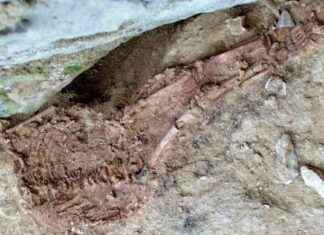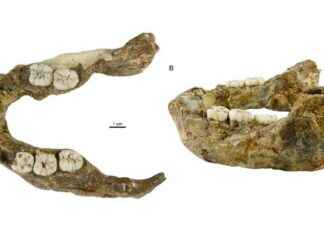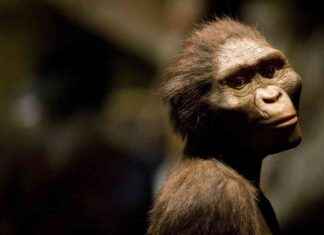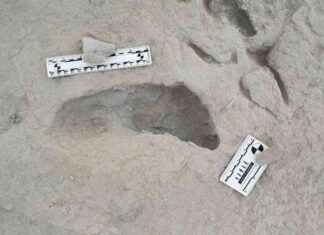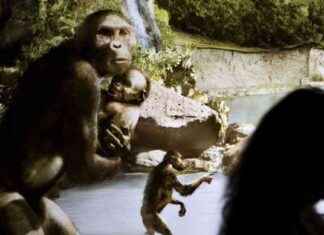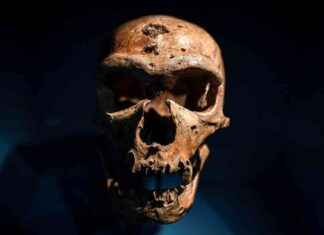Tag: Human Evolution
Lapedo Child: Neanderthal-Human Hybrid Discovered After Extinction
In a groundbreaking discovery that challenges our understanding of ancient burial practices and human evolution, archaeologists unearthed the skeleton of the Lapedo child in 1998. This remarkable find sheds light on a hybrid individual...
Ancient Jawbone Reveals New Human Ancestor
Ancient Jawbone Unveils New Human Ancestor In a groundbreaking study, researchers have uncovered a 1.4 million-year-old fossil jaw belonging to a previously unknown human relative from southern Africa. This newly identified extinct human relative hails...
Evolutionary Reason Why Humans Rarely Have Twins
Twin Births: A Rare Phenomenon Explained by Evolution Twins are a rare occurrence in human history, often viewed as special due to their uniqueness. Many cultures have attached symbolic meanings to twins, associating them with...
Early Human Ancestors Were Capable of Jogging but Not Over Long Distances
3D models of Australopithecus afarensis hint at the muscular adaptations that made modern humans better runners Ancient human relatives ran on two legs, like modern humans, but at a much slower pace, suggest 3D computer...
Early Human Species Cross Paths: Fossil Footprints Evidence
Two sets of fossilized footprints from early human species were discovered near Lake Turkana in Kenya, shedding light on the coexistence of two different hominin species. The footprints were made about 1.5 million years...
Lucy’s World: Living Alongside 4 Proto-Human Species
A sculpture of "Lucy", a 3.2 million-year-old Australopithecus afarensis hominin, along with a baby and other group members on display at the Houston Museum of Natural Science in 2007. About 3.2 million years ago, our...
Identifying the Last Neanderthal: Latest Research and Findings
Neanderthals were an ancient species that once roamed Eurasia but disappeared around the time Homo sapiens arrived in Europe. Archaeologists have long been curious about the last Neanderthals and where they lived. Many believe...
ADHD in Prehistoric Humans: Why the Trait Hasn’t Adapted to Modern Life
As a person with mild ADHD, I often find it challenging to focus when there are distractions around me. The trait of being easily distracted can make it difficult to sit through long classes...
Neanderthal Dwellings: Caves vs. Valleys – Uncovering the Debate
Most humans today spend the majority of their time indoors, but Neanderthals, who lived over 520,000 years ago, spent most of their time outdoors. The origins of Neanderthals are believed to be in Africa,...
Uncovering the Smallest Human Arm Bone: A Key Piece of the Hobbit Origin Puzzle
A recent discovery of fossils on the Indonesian island of Flores has provided new insights into the origins of the diminutive protohumans known as Homo floresiensis, or the so-called Hobbits. The fossils, dating back...

